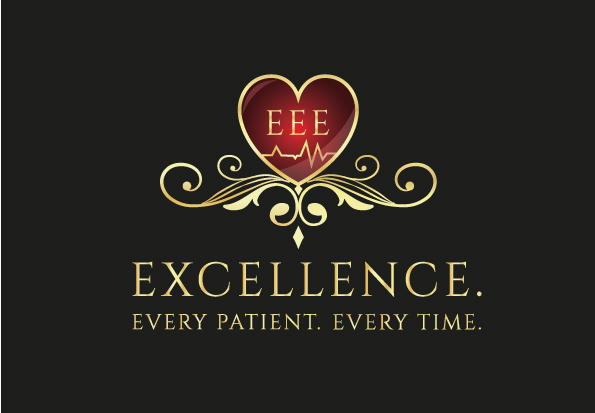Medicinska škola, Šibenik


| « Veljača 2025 » | ||||||
| Po | Ut | Sr | Če | Pe | Su | Ne |
| 27 | 28 | 29 | 30 | 31 | 1 | 2 |
| 3 | 4 | 5 | 6 | 7 | 8 | 9 |
| 10 | 11 | 12 | 13 | 14 | 15 | 16 |
| 17 | 18 | 19 | 20 | 21 | 22 | 23 |
| 24 | 25 | 26 | 27 | 28 | 1 | 2 |
| 3 | 4 | 5 | 6 | 7 | 8 | 9 |

Naziv projekta: Vještine za zdraviji svijet
Akronim: Skills for a healthier world
Aktivnosti projekta možete pratiti i na https faceboock stranici:
https://web.facebook.com/profile.php?id=61566031381216
Naziv projekta: Zdravlje-izazovi novog doba
Akronim: Health - the challenge of the new age
Aktivnosti projekta možete pratiti i na https faceboock stranici:
https://web.facebook.com/zdravlje.izazov.novog.doba/
Naziv projekta: Zdravstvo u Europi - radimo i učimo (Akronim: Healthcare in Europe - work and learn)
Aktivnosti projekta možete pratiti i na https faceboock stranici:
https://www.facebook.com/medskolasibenik/?ref=pages_you_manage

Projekt mobilnosti Erasmus+ Srednje medicinske škole pod nazivom Excellence. Every Patient. Every Time.
Aktivnosti vezane uz Excellence. Every Patient. Every Time. projekt možete pratiti i na facebook stranici
https://www.facebook.com/
excellence.everypatient@gmail.com
VAŽNO!
Poštovani maturanti,
u vremenu smo drugačijega načina rada od onoga na koji smo svi navikli pa se moramo prilagoditi.
Kako je ovo vrijeme odjava, promjena i naknadnih prijava ispita obrasce zamolbe možete preuzet putem e-mail pošte (ana.grubisic1973@gmail.com).
Za sva pitanja stojim vam na raspolaganju.
Srdačan pozdrav
Koordinatorica: ANA GRUBIŠIĆ
Transparenatan uvid u financijsko poslovanje Šibensko-kninske županije, pregled isplata iz proračuna te uvid u podatke Riznice možete pronaći klikom na sliku.
PROCJECT SUMMARY
Human rights movement has seen dramatic progress in recent decades. However, recent rise of rightwing populism shows that gains made are still fragile. Thus, it is important that young people continue fighting for human rights in their communities. This is why young people have decided to create this youth exchange with a goal to better understand human rights, especially in relation to the right to education.
In 2012, the European Council adopted a Strategic Framework on Human Rights and Democracy, accompanied by an action plan to implement the framework. Some of the areas on which this framework relates to include:
-Combating violence against women and girls
-Protecting the rights of lesbian, gay, bisexual, transgender and intersex (LGBTI) people
-Protecting human rights defenders
-Complying with international humanitarian law (refugees and asylum seekers ) - Dialogues on human rights.
This project is important because in these areas partner countries on this project lag behind Northern and Western European countries with respect to human right protections. The problem is not just inadequate laws, but discriminatory social attitudes.
For this reason, it is important for young people to engage in these issues to fight stereotypes, prejudices and discrimination. By spreading awareness of the need to protect human rights in the society will also put pressure on the institutions to take human rights violations seriously. This is important because one of the key problem in partner countries is that we often have human rights good laws, but they are not implemented, and they are not implemented because of stereotypes and prejudices.
The objectives of the youth exchange are:
1 . improve the understanding of the concept of human rights among young people
Young people will better understand history of the human rights movement and how human rights are a crucial part of European values. They will also learn about the key documents on the European and global level, aimed at guaranteeing human rights. Participants will focus on three areas which young people decided are the most pressing and controversial in their societies:
-sexuality and gender, i.e. equality between men and women and between heterosexual/cisgender majority and sexual and gender minorities (LGBTI)
-race, ethnicity and religion, i.e. equality between the majority and ethnic, racial and religious minorities
-right to education, with a special focus on integration of vulnerable minorities into the educational system.
These topics were selected by young people because these are the most pressing and controversial issues in their countries. LGBTI issues are taboo in most partner countries, nationalism is also very strong in most partner countries with violations of human rights of their ethnic and religious minorities not uncommon. Young people have especially chosen the topic of refugees, which is one of the most contentious issues in their societies and it often highlight racial, religious and ethnic prejudices in their countries.
Obtaining a good education is one of the preconditions for having a happy and successful life as an adult. Therefore, participants will focus on challenges young people face in obtaining good education, like rising costs of higher education, underfunded public schools and bullying and discrimination in the educational institutions, which can limit access to good education to youth from vulnerable groups.
2 . improve the abilities of partner organisations to implement non-formal education activities
Most partners are schools and many partners have experience in education projects of ERASMUS+, but not in youth projects. Through this projects partners will improve their ability to implement international projects with a special focus on their extracurricular activities and non-formal education methods with their students. Furthermore, they will create networks with schools from other countries which they can use for future projects in both education and youth segment of ERASMUS+. Finally, partners will improve their work with young people by learning to let young people be in charge of selecting and implementing activities based on non-formal learning. In this youth exchange, the participants will create activities and projects which will later be implemented in their schools.